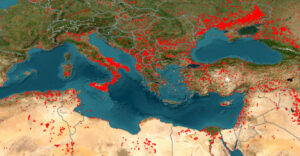On August 4, 2020, National Security Advisor Robert O’Brien issued a statement lamenting escalating conflict in Libya. “We strongly oppose foreign military involvement, including the use of mercenaries and private military contractors, by all sides,” he wrote, adding, “Escalation will only deepen and prolong the conflict.” It was the type of anodyne but ultimately meaningless statement that passes for substantive diplomacy when none exists. “Libyans can win only if they come together to reclaim their sovereignty and rebuild a unified country,” he stated.
Moral equivalence blinds. Who wins matters. There are two main sides to the conflict. Fayez al-Sarraj is the prime minister of the Government of National Accord based in Tripoli, and Khalifa Haftar who answers to the elected House of Representatives based in Tobruk. Both are deeply-flawed individuals. Sarraj is an Islamist who has not only welcomed Turkish interference and the Islamic State veterans who now populate Turkish-backed proxy forces, but also sold his country’s birthright to Turkey in exchange for his protection against challengers. Haftar, on the other hand, is autocratic and untrustworthy; the State Department resists dealing with him because they fear he would sell them out to Moscow, while the Kremlin assesses that he could just as easily flip on them. Adding to the complexity is the fact that those fighting for each are motivated more by hatred of the other than by loyalty to their leader. What this means in practice is that if either Haftar or Sarraj is defeated, the victorious forces are likely to turn on each other almost immediately.
That does not mean the United States can afford to be neutral, even if neither leader is a democrat. While Haftar includes some Islamists in his ruling coalition, his coalition’s broader outlook is more secular. More importantly, by subordinating himself to Turkey and by welcoming Islamic State veterans into proxies working on his behalf, Sarraj has forfeited any claim to leadership.
Panic in international banks, they want to get rid of the Turkish lira
The worm is in the fruit: A rising strategic foe inside NATO
The State Department might wring its hands with regard to escalation in Libya, but a dispassionate assessment shows these concerns overwrought. Certainly, Turkey has managed to reverse the momentum of Haftar’s drive toward Tripoli by serial violations of the UN arms embargo, but Turkish President Recep Tayyip Erdoğan has made a significant error. Without a doubt, the Turkish leader has for well-over a decade taken a pair of twos and beat a royal flush because of the timidity of the State Department and regional leaders unwilling to call his bluff. But, as Greece recently demonstrated, he is unwilling or unable to back his rhetoric with action; when confronted, he backs down. But what if he does not? When Egypt recently signaled it would do what it took to prevent the advance of Turkish-backed forces toward its borders, it was not bluster. Turkey supply Sarraj and its proxies with both drones and MRAPs, but the Egyptian military showed that it was able to mobilize and transport into position dozens of tanks in hours; Turkey takes days or weeks to accomplish the same movements toward Libya. Simply put, Egypt is much-better positioned to achieve its aims in Libya than can Turkey.
Read more: National Interest
Ask me anything
Explore related questions





